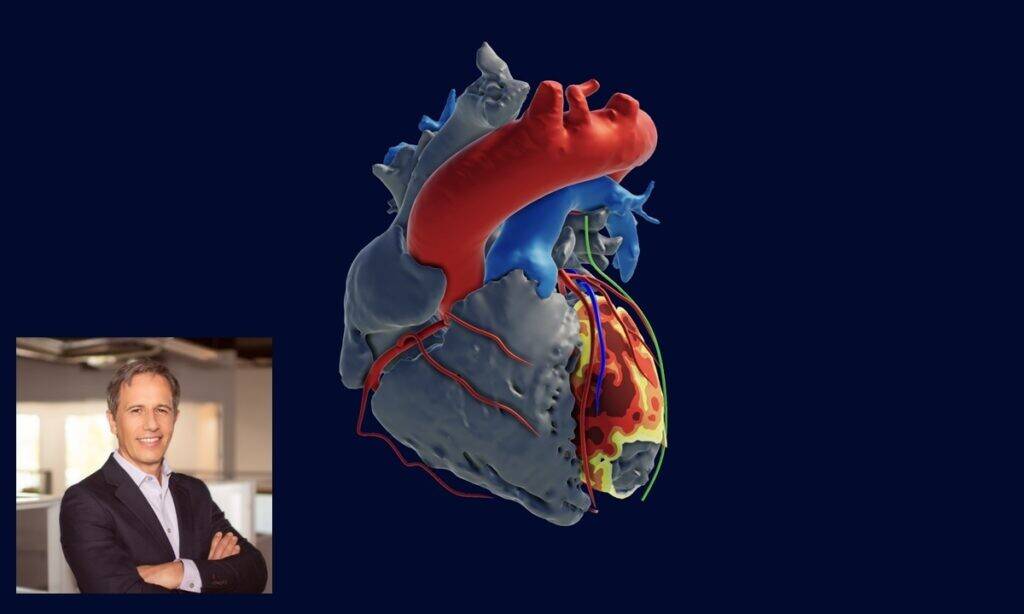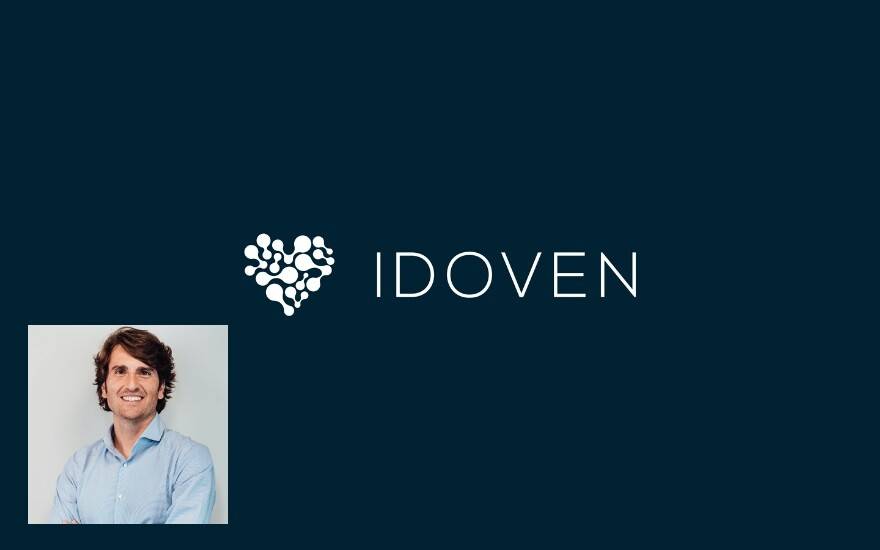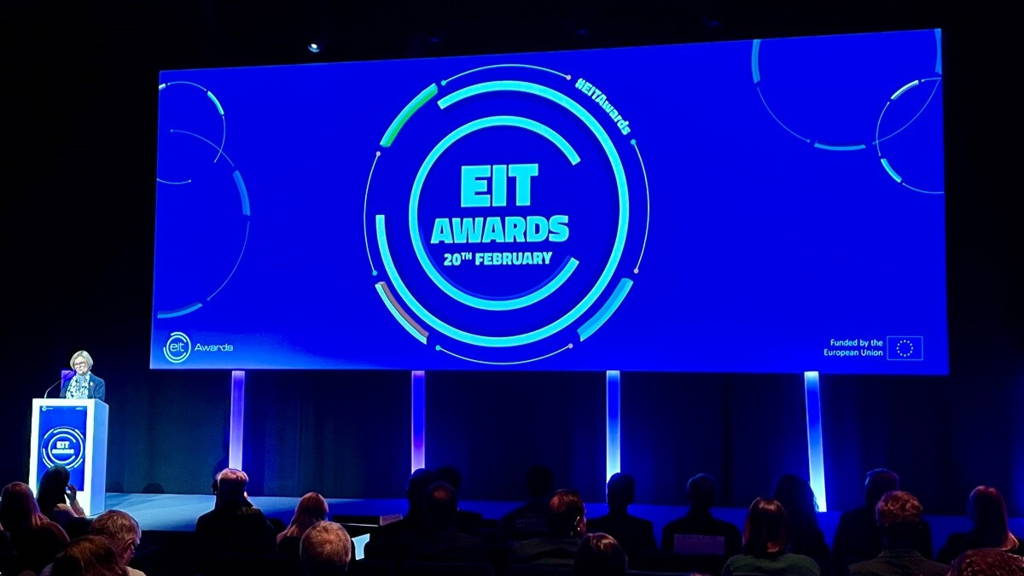Among the nominees developing innovations in different sectors – from energy and mobility to manufacturing and agriculture – two startups are working on technologies addressing challenges in cardiology.
The spotlight on cardiology is underpinned by data – cardiovascular diseases (CVD) are the leading cause of death in the EU (1.8 million deaths each year). The costs of CVD are estimated to be as high as 210 billion Euros a year.
The first finalist nominee is inHEART (France), which aims to revolutionize cardiology with an AI-powered digital twin of the patient's heart derived from pre-operative CT and MRI scans. The second contender for the EIT Awards is the ASSIST Consortium (Spain), which comprises 14 international collaborators spearheaded by the health-tech startup Idoven. Their mission is to pioneer the world's premier AI-driven solution for the early detection and precise triage of acute myocardial infarction (heart attack), powered by the AI cloud-based platform.
inHEART: AI-enabled digital twin of the heart for precision image-guided ablations

What is inHEART working on?
inHEART is a web-based AI software company located in France and the US. We provide cardiologists with a personalized digital twin of the patient's heart. The digital twin is generated in the cloud by analyzing cardiac images and electrocardiograms. The cardiologist uses inHEART's digital twin to treat the patient more efficiently and effectively, stratify the risk of cardiac diseases, and prevent complications. Our technology also allows for the first time to screen the asymptomatic population for cardiac diseases.
What impact can a digital twin heart have on cardiology?
Our goal is to address three significant issues in the current cardiac disease care continuum – the need for personalized therapy, predictive medicine for proactive healthcare, and solutions to screen the general population for early detection of cardiac diseases. inHEART is at the forefront of predictive medicine in cardiology and is revolutionizing the industry.
Our therapy support solution doesn't replace existing cardiac ablation technologies but instead allows the physician to be more efficient and effective in treating patients with all existing OEM systems. This is demonstrated in an ongoing randomized clinical trial funded by EIT Health. In prevention, we will replace the poor risk stratification scores for sudden cardiac death or cardiac embolism, such as LVEF and CHADS-VASC.
How is the solution being developed?
We use machine learning-based AI technology to analyze the cardiac images and electrocardiograms. We also utilize physiological simulations to visualize cardiac arrhythmia and enhance the accuracy of our biomarkers. The anatomical model's accuracy depends on the cardiac images' accuracy, which is in the submillimeter range.
What benefits does the digital heart offer?
Heart disease and stroke are the dominant leading causes of death worldwide. Cutting-edge technologies and AI are transforming the reactive "sick" care systems, where we diagnose and treat illness, to predictive medicine for proactive healthcare, where we identify and mitigate health risks ahead of time. By helping avoid complications, our technology helps reduce costs for the health system and save lives.
What is your scope of operations and plans?
inHEART focuses on growing its user base in Europe and the US. Currently, inHEART is available in more than 140 hospitals. In addition, inHEART entered two industrial partnerships, MEDITWIN, funded by Bpifrance, and TALENT, sponsored by the French Academy of Science, to clinically validate its solutions for preventing sudden cardiac death and cardio-embolic stroke. We are very excited about the opportunity to bring these solutions to market soon.
IDOVEN: Cardiology-as-a-service platform powered by artificial intelligence

What's the story of IDOVEN?
IDOVEN was established after five years of fundamental and translational scientific research at the Spanish National Centre for Cardiovascular Research (CNIC). During this period, my co-founder José María Lillo, an engineer starting his Ph.D. in machine learning, and I, a cardiologist with a master's degree in statistics, conducted scientific research to apply machine learning techniques in cardiology. In 2018, we fully committed ourselves to advancing AI in cardiology and founded IDOVEN.
Today, IDOVEN is the European HealthTech company that has developed the world's first cardiology-as-a-service platform powered by artificial intelligence. The platform, known as Willem, augments the capability of cardiologists and non-cardiology expert clinicians such as oncologists or primary care physicians to identify, triage, diagnose, and monitor patients at scale. Willem is certified Software as a Medical Device (SaaMD) Class IIa and can detect cardiac patterns and intervals across almost any ECG recording device type, including 12-leads, ambulatory ECG devices (such as holters and patches), and Insertable Cardiac Monitors (ICM).
How can the solution improve diagnosing and monitoring patients with cardiovascular diseases?
Cardiovascular diseases (CVD) are the leading cause of death globally, presenting a significant challenge in healthcare due to the variability and complexity of diagnosing these conditions.
The ECG is the leading complementary test and entry point for any specialty to diagnose heart problems. Several studies have shown that the accuracy of ECG interpretation varies widely, with a median accuracy of 54-67%.
The accuracy for pretraining assessments is 42.0% for medical students, 55.8% for residents, 68.5% for practicing physicians, and 74.9% for cardiologists. This inconsistency highlights the need for improved diagnostic software to standardize and support healthcare professionals. Additionally, interpreting ECGs is time-consuming - as a practicing cardiologist, I saw this problem firsthand as I spent a lot of time interpreting long-duration ECGs (also known as holters) rather than with patients.
Our goal at IDOVEN is to transform cardiology by harnessing artificial intelligence to enhance ECG interpretation accuracy, speed, and consistency. Our AI-powered platform is designed to work with current ECG manufacturers, providing real-time expert-level analysis that surpasses traditional performance achieved with non-AI-based algorithms. By improving diagnostic precision, we aim to ensure no cardiovascular disease goes undiagnosed or untreated, significantly reducing the global prevalence and economic burden of CVD.
How has AI been applied to your solution?
Our Artificial Intelligence has evolved from desktop software created in Madrid to a cloud-based intelligence using DNN models with more than 300 million nodes and utilizing 57,000 GB of RAM memory, working towards our goal of being the most accurate AI software available. Willem is a very capable AI model able to understand what is happening in the heart of a patient suffering a cardiac event.
We have also transitioned from a closed platform to an open platform that can be integrated with third-party hardware, software, electronic medical record systems, and pharmaceutical companies' digital solutions.
What does IDOVEN offer cardiologists that have not been available before?
We have refined our AI models from an extensive and diverse ECG database covering healthy individuals and those with diagnosed cardiac conditions. This comprehensive training ensures accuracy and versatility in ECG analysis.
We also believe that healthcare is evolving into a value-based model that focuses on improving patient outcomes and solutions. Our approach has earned the trust of leading pharmaceutical companies and device manufacturers, such as Novartis, AstraZeneca, Abbott, and GE Healthcare.
We are committed to advancing cardiac care and are actively engaged in R&D projects to predict CVDs and develop algorithms to identify potential patients with hard-to-detect conditions earlier in their journey. Our focus on early detection enables timely intervention, allowing patients to receive the necessary care and treatments to lead healthier lives.
How will technology benefit doctors and patients?
European doctors currently spend one million hours every day analyzing ECGs. However, by utilizing AI-powered solutions to enhance the accuracy and efficiency of ECG interpretation, we can ensure early and precise diagnosis of cardiovascular diseases. This leads to better patient outcomes and frees up healthcare professionals from repetitive ECG analyses, allowing them to dedicate more time to direct patient care and improving service quality.
It can allow for earlier detection of cardiovascular disease that may otherwise be difficult to detect, such as heart failure, atrial or ventricular arrhythmias, cardiotoxicity, hypertrophic cardiomyopathy, amyloidosis, or heart attacks. Allowing patients to start care sooner and improve their overall outcomes. Additionally, our approach introduces significant cost savings and operational efficiencies, optimizing resource allocation and increasing patient care capacity for the healthcare system.
How effective is the solution?
Some examples of Willem's performance have been recently validated in various studies, showcasing its cardiologist-level accuracy. A research paper indicates that the application of this AI software has improved the accuracy of arrhythmia detection in Insertable Cardiac Monitors (ICMs) by 95.4%, thereby reducing false positive detections by 98%.
Another paper demonstrates that IDOVEN's AI Platform can improve arrhythmia detection in ICMs from 4 to 25 cardiac rhythm patterns. Our AI platform also significantly reduced the interpretation time from 11 minutes to just 6 seconds.
In 2019, we published one of the studies done at CNIC together with David Filgueiras-Rama in Europace. It's a multicenter study with more than 50 hospitals involved where one of our first prediction models was able to identify patients who are at an increased risk of developing persistent atrial fibrillation within the next six months.
How will IDOVEN continue to develop?
Our plan for further development is multifaceted, focusing on creating a very strong AI and cloud-first team, continuous enhancement of our platform, ongoing R&D projects, and market expansion.
To expand the platform, we aim to integrate more cardiac patterns and extend compatibility to a broader range of devices, all while improving user experience. Concurrently, we are advancing our research and development projects, developing innovative algorithms and tools that aid in the early detection and accurate diagnosis of cardiovascular diseases.
These projects are being validated in the market to ensure they meet the evolving cardiac care needs. In parallel, we plan to expand our reach by partnering with more pharma companies, medical device manufacturers, healthcare providers, hospitals, and doctors, assisting them in diagnosing cardiovascular diseases more efficiently.
This integrated approach allows us to drive innovation in cardiac care, offering more precise, accessible, and effective diagnostic solutions, ultimately improving the most important metric of all patient outcomes.







